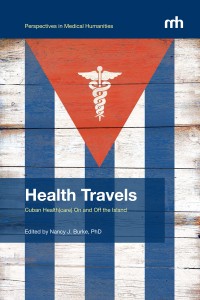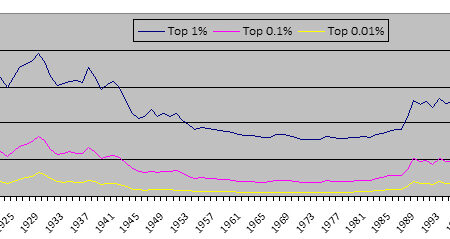Global health is one of the fastest growing disciplines in academia. Responsible for mobilizing billions of dollars in research, interventions, and evaluation, graduating thousands of experts in the United States each year, and mediated by world renowned non-governmental organizations (NGOs) like the Bill and Melinda Gates and Clinton Foundations, global health has emerged as an academic field centered on innovation and a commitment to improving the health of communities across the globe.
Yet as evidenced by the number of articles and now two recent edited volumes presented as global health textbooks—including Farmer et al.’s Reimagining Global Health (2013), and Biehl and Petryna’s When People Come First (2013)—exactly what falls under the rubric of global health, as a discipline and as praxis, is still being defined.
The fraught definition of global health has predominantly fallen within the field of medical anthropology. Indeed, many global health physicians and practitioners are also trained medical anthropologists (Paul Farmer is perhaps the most popularly known MD-PhD). Medical anthropology has a long tradition of studying health, illness, and healthcare through a social science framework, allowing for a very nuanced approach of drawing on ethnographic data, and the field tends to problematize even its object of study, situating it in its sociopolitical, cultural, geographic, historical, and temporal context.
Another common mode within global health lies in examining modes of governance in and through global health programs, the technologies by which governance is established, and how these may be simultaneously adopted and contested. In the words of one of anthropology’s most revolutionary practitioners, UC Berkeley Professor of Anthropology Laura Nader, anthropologists “study up” the chain of global health institutions as much as they study down.
A major contribution to this field—and to the question of global health and to the anthropology of Cuba—is the recent publication of Health Travels: Cuban Health(care) On and Off the Island, a comprehensive and critical look at the history, construction, and circulation of the Cuban healthcare system in a global context. Nancy Burke, professor of medical anthropology in UC San Francisco and UC Berkeley’s joint program, edited this volume, which itself was the result of a conference she organized at UC Berkeley in 2010, entitled “In Sickness and in Health: Encountering Wellness in Cuba and the United States”.
The contributing authors of this volume study the ways in which “various assemblages of global, national, and sub-national factors converge on health issues, problems or outcomes in the particular local context of Cuban health(care),” Burke writes.

The theoretical and practical force of this volume lie in the incisive critiques extracted from rich ethnographic evidence presented in each chapter, which cover a wide range of health concerns, from men’s health to food insecurity, among others. Divided into three thematic sections, the authors of Health Travels provide readers with a deep sense of the daily entanglements of “elemental aspects of Cuban health(care),” such as seeking prenatal care or contracting dengue fever, and describe how these are affected by (and reflective of) broader global discussions and stakes in health.
For instance, Elise Andaya’s chapter on prenatal care in Cuba is a critical look at the production and circulation of Cuban reproductive health statistics. By following the lives of Cuban women seeking prenatal care, and the lives of their health care providers, she “questions the numbers,” and shows how Cuban health statistics on infant and maternal mortality are tied to both international stakes and the Cuban state’s desires to (re)produce a healthy socialist population. Providers rely on Cuban reproductive health statistics, which themselves can be understood as “technologies of scientific knowledge, government administration and symbolic representation,” to govern the behavior of Cuban mothers. Interestingly, many of these women push back against their doctors’ orders. Anadaya shows how a simple office visit can be a terrain of competing desires and forms of governance.
In another chapter, Charles Briggs, Professor of Medical Anthropology at UC Berkeley, writes about the negative media representation of the Cuban population during the rise of dengue fever. He demonstrates how Cuba’s anxiety around dengue and the potential for this epidemic to undermine Cuba’s status as a site for global medical diplomacy was displaced onto its citizens. Briggs deftly ties narratives of dengue failure and success to narratives of the Cuban revolution as dengue came to become a symbol of the Cuban public health infrastructure. By bringing media coverage of this recent epidemic into conversation with the reports and actions of Cuban state and public health officials, both before and after the epidemic subsided, Briggs demonstrates how unstable the labels and characterizations of a population, patients, and even the Cuban state truly are. Moreover, his chapter shows how anxiety over this instability may dictate how a population is governed.
As Burke notes, the anthropology of global health often focuses on “tensions between national sovereignty and transnational authority of institutions such as the World Health Organization.” Through careful investigations and ethnographic accounts, this volume illuminates the necessity for situating analyses in locally specific contexts. We are given examples of how Cuba can help reorient global health analyses—noting in the case of Andaya how state desires and priorities, and not just the goals of transnational institutions, can affect health governance. In this case, then, global health interventions are in fact instantiations of national sovereignty rather than transgressions of them. Health Travels provides much needed analyses for the emergent ways that medical governance takes shape and reorients people and states and their relations to each other in a global health landscape.



